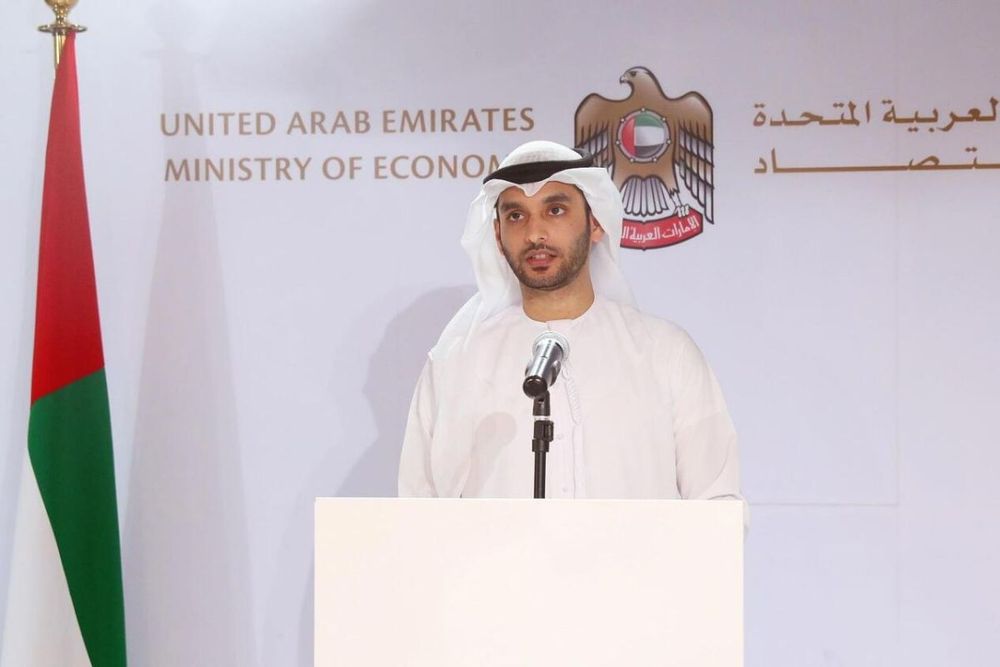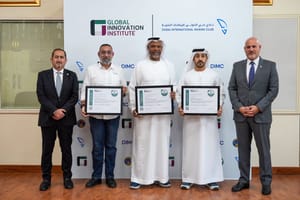The new laws allow greater flexibility to accommodate unconventional trademark patterns and provide them with legal protection, in light of the advanced technologies used in building companies’ trademarks.
The UAE has been taking significant efforts in promoting the system of intellectual property (IP) and copyrights, with trademarks as a key pillar, Abdulaziz Alnuaimi, Assistant Undersecretary of the Commercial Affairs Regulation Sector at the Ministry of Economy, said on Thursday.
He noted that the UAE has therefore issued a set of legislations and laws to support trademark owners to ensure their growth and prosperity within a secure and safe environment. The new laws, introduced in 2021 as part of the "Year of the 50th" celebrating the fiftieth anniversary of the foundation of UAE, and made effective as of 2 January 2022, are intended to keep pace with the developmental achievements of the UAE and reflect the country’s aspiration as an R&D and innovation hub.
The laws, which establish major rules for trademark owners within a barrier-free environment that promotes creativity and innovation, raised certain fines up to Dh1 million in order to put a stop to trademark infringement.
Alnuaimi said the executive regulation of the trademark aims to combat all forms of commercial fraud, improve the quality of products traded in the UAE market, and enhance the attractiveness of the national economy before leading global companies and brands. The regulation also aims to support and develop Emirati brands and ensure their competitiveness globally, as well as increase their effective contribution to the country’s GDP growth.
“These efforts emphasize the significant role of this sector in encouraging creativity and its contribution to building the country’s new economic model based on knowledge and innovation, and in line with the goals and principles of the 50 and the UAE Centennial 2071,”
Alnuaimi said at a media briefing.
He said the new regulation reflects an exceptional integration of efforts between the ministry and its local and federal partners, as well as global entities concerned with the IP sector.
“The collaboration guarantees the country’s adherence to international best practices in this regard, thereby stimulating FDI flows and attracting international companies to relocate to the UAE by guaranteeing a highly conducive working environment. This, in turn, strengthens the UAE’s position as a favored destination for innovators and creators, thus promoting its leadership in global competitiveness indexes for IP protection,”
Alnuaimi said.
He pointed out that the new laws allow greater flexibility to accommodate unconventional trademark patterns and provide them with legal protection, in light of the advanced technologies used in building companies’ trademarks.
“This shows how the UAE is keeping pace with international developments in the field, consolidating its position among the countries with advanced, innovative trademark protection.”
According to experts, fines have been increased to between Dh100,000 and Dh1 million for the following offences: forgery or counterfeiting; knowingly using a forged or counterfeit trademark; using in bad faith a trademark owned by another; possession of material for the imitation or counterfeit of a registered trademark; and importing or exporting of counterfeit products. A reduced fine of Dh50,000 — Dh200,000 applies to the sale or possession of counterfeit products and the use of an unregistered trademark in a manner to suggest that it has been registered. This is a stark contrast from the Repealed Trademark Law which set minimum fines at Dh5,000, according to experts.
“Article 39 of the amended copy rights law increases the potential fines for copyright infringement from a maximum of Dh50,000 to Dh100,000 (previous penalty was Dh10,000 – Dh50,000 under the Repealed Copyright Law). Article 40 also introduces new more severe penalties for (a) manufacturing or importing counterfeit works; (b) disrupting or impairing electronic data aiming at managing copyrights; and (c) downloading or storing computer programmes, applications or databases without a licence from the author or rightsholder. Such offences now carry a minimum imprisonment of 6 months and/or a fine of between Dh100,000 — Dh700,000 (previous penalty was minimum three months imprisonment and fine of Dh 50,000 — Dh 500,000 under the Repealed Copyright Law,”
say experts.
Higher penalties apply to reoffenders, copyrights law experts pointed out. The increased penalty for downloading computer programmes without a licence is something that, in particular, enterprise software users should be aware of. Interpreted literally, businesses who exceed their licence permissions/metrics in software licence agreements are potentially committing a crime under the Copyright Law and could face significant fines or imprisonment (without prejudice to other contractual remedies that the software licensor may wish to pursue). Enterprise software licences can be complicated to negotiate and interpret and it is important that businesses procuring software licences understand their usage entitlements and obtain sufficient legal and technical advice, according to legal experts.
News Source: Khaleej Times









